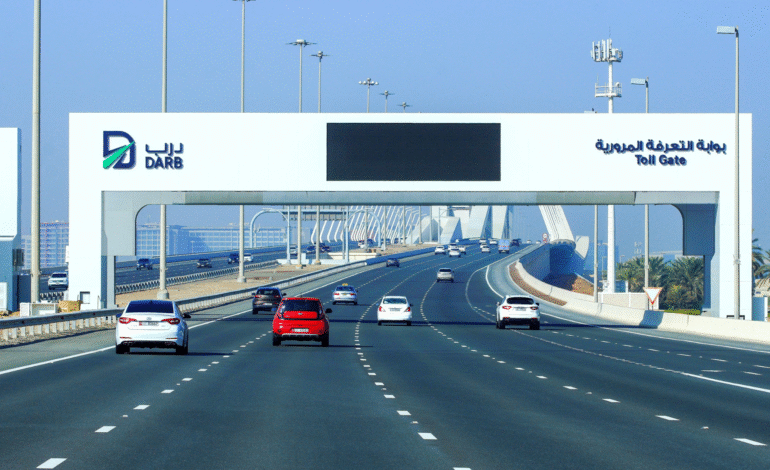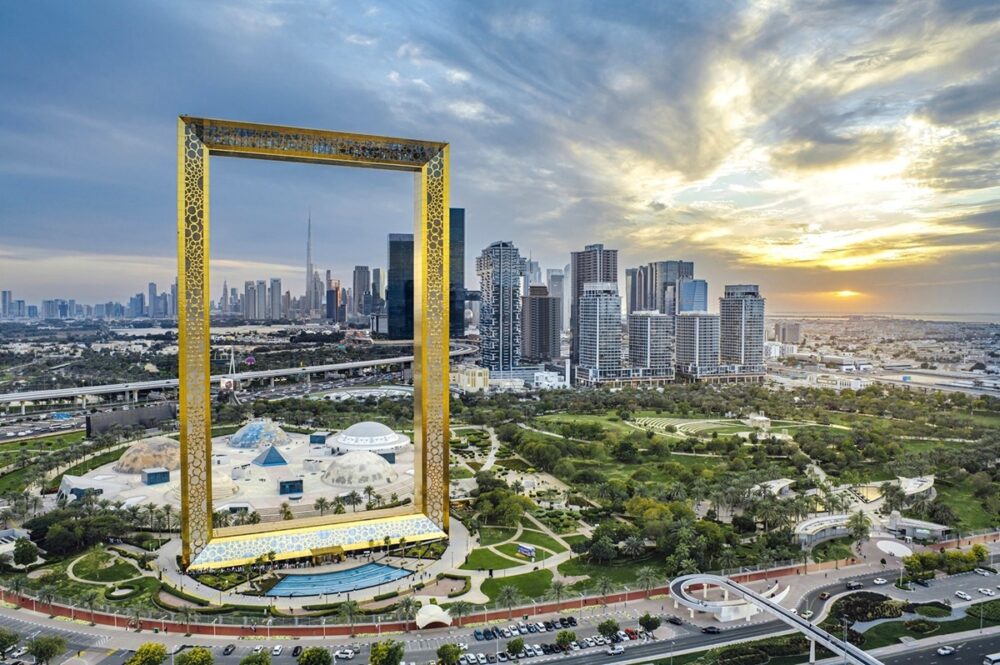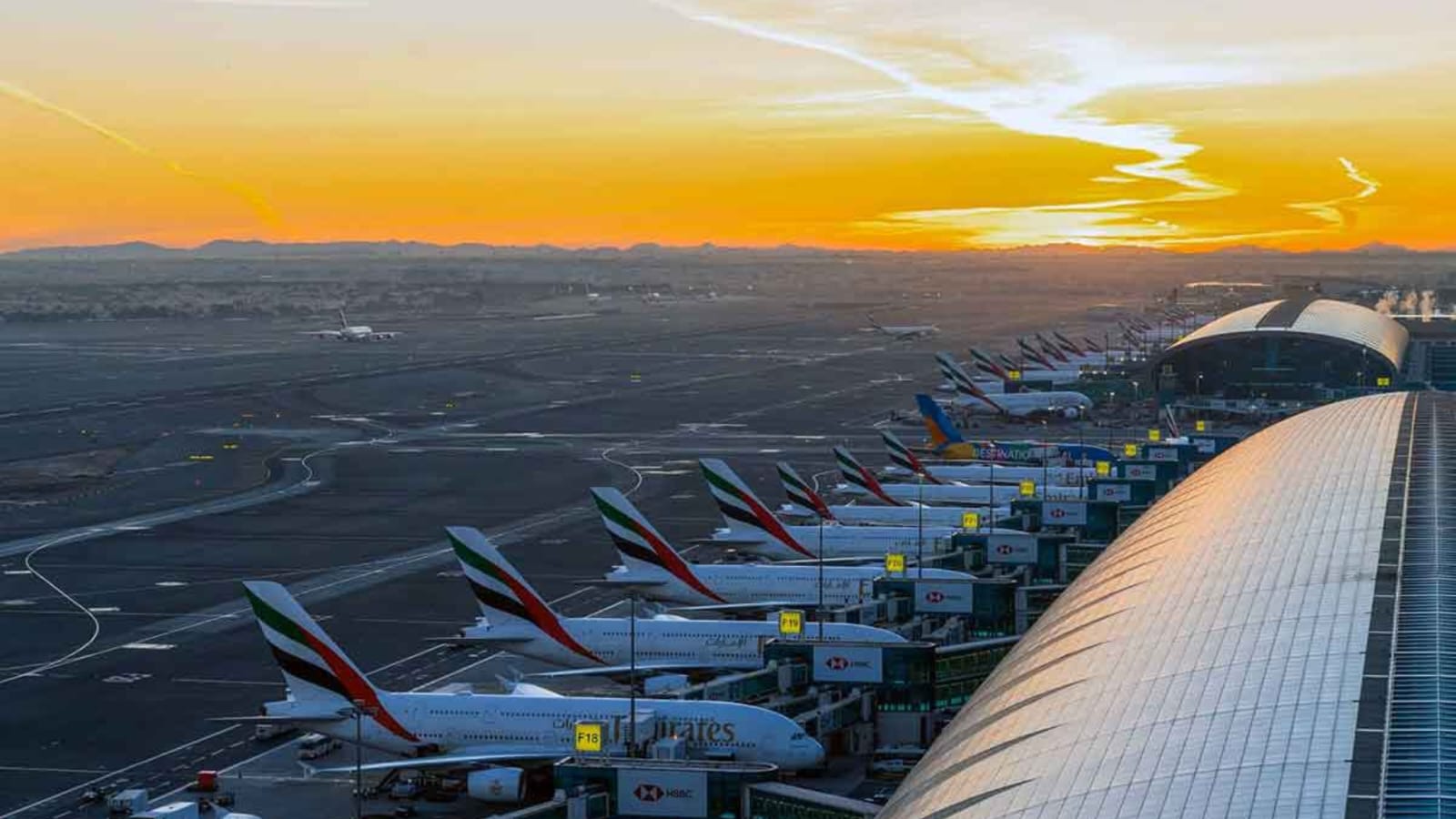Abu Dhabi Updates Darb Toll Hours and Removes Fee Caps

Abu Dhabi is making important changes to its road toll system, Darb, starting Monday, September 1, 2025. The new rules will adjust toll timings, remove daily and monthly caps, and keep exemptions for certain groups.
The Integrated Transport Centre (ITC), under the Department of Municipalities and Transport (DMT), announced the changes earlier this month. The move is part of Abu Dhabi’s efforts to improve traffic flow, reduce road congestion, and create a more efficient transport system.
A Quick Look at the Darb Toll System
Abu Dhabi introduced the Darb toll system in January 2021. It was designed to reduce congestion, improve road safety, and encourage people to use public transport.
The system uses smart gates to detect vehicles and charge them automatically. Each vehicle needs to be registered with a one-time fee of AED 100, with AED 50 credited to the driver’s account.
Since its launch, Darb has become an important tool for traffic management. It helps reduce unnecessary car trips during busy hours and encourages smarter travel planning.
What Is Changing in Darb from September 1, 2025?
The latest update brings three major changes :
1. New Evening Peak Hours
From September 1, 2025, evening toll hours will shift. The new peak time is 3pm to 7pm.
Morning toll hours remain the same, from 7am to 9am, Monday to Saturday.
2. No More Daily or Monthly Caps
Previously, drivers paid a maximum of:
- AED 16 per day
- AED 200 per month for the first vehicle
- AED 150 per month for the second vehicle
- AED 100 per month for the third and more vehicles
These caps will no longer apply. From now on, drivers will pay AED 4 per crossing, with no maximum limit.
3. Exemptions Will Stay the Same
Some vehicles remain exempt from tolls. These include:
- Vehicles owned by people of determination
- Vehicles owned by senior citizens
- Vehicles owned by retirees
- Vehicles owned by low-income families
Also, Sundays and public holidays will remain toll-free.
Why Did Abu Dhabi Change the Darb System?
The ITC explained that the changes are based on traffic studies. Data showed that congestion often builds in the afternoon, especially between schools closing and office hours ending. By moving evening tolls to 3pm–7pm, the city can reduce traffic at these critical hours.
Removing the caps makes the toll system more effective. Earlier, once drivers reached their daily or monthly limit, they no longer had an incentive to reduce trips. Without caps, every trip during peak hours will count, which helps discourage unnecessary travel.
These updates are also linked to Abu Dhabi’s bigger goals. The city wants to:
- Encourage public transport use
- Promote carpooling
- Cut vehicle emissions
- Support sustainable urban planning
How Will the Changes Affect Motorists?
For many drivers, the main impact will be higher costs if they travel often during peak times.
For example, a person driving through two gates twice a day could previously pay a maximum of AED 200 per month. Under the new rules, their bill could be higher depending on the number of trips.
However, the ITC stressed that the goal is not to collect more money. Instead, it is to manage traffic and make roads less crowded.
The new rules may also push more people to use:
- Public buses and taxis
- Carpooling apps and ride-sharing services
- Flexible work timings offered by some companies
Who Manages the Darb Toll System?
The Darb system is operated by Q Mobility, a subsidiary of ADQ. The company manages the technology behind the toll gates and ensures smooth operation.
Drivers can check their toll charges using the Darb mobile app. The app shows account balances, trip histories, and allows easy recharging. With the new system, the app will be more useful for tracking spending.
How Does This Compare with Dubai’s Salik?
Dubai has its own toll system called Salik. Like Darb, it charges AED 4 per crossing. However, there are some differences:
- Salik works 24 hours a day.
- Darb only applies during peak hours.
- Salik has no exemptions, while Darb exempts certain groups.
Now that Abu Dhabi has removed daily and monthly caps, both systems are more similar. This helps create a unified tolling approach across the UAE.
Public Reaction to the Announcement
The announcement has received mixed reactions. Some drivers are worried about higher costs, especially for those who commute daily. Others believe it will improve traffic conditions and make driving less stressful.
Transport experts say that over time, drivers will adjust. Some may change their schedules to travel outside peak hours. Others may shift to public transport. The change could also push more companies to allow remote or flexible work hours.
Future of Smart Mobility in Abu Dhabi
The Darb update is only one part of Abu Dhabi’s long-term mobility plan. The emirate has already invested heavily in smart roads, AI-driven traffic systems, and sustainable transport solutions.
In the future, Darb may include features such as:
- Dynamic pricing, where toll charges change based on real-time traffic
- Discounts or exemptions for electric and hybrid vehicles
- Integration with new public transport projects, such as metro and tram systems
These efforts are part of Abu Dhabi Vision 2030, which focuses on building a smart, sustainable, and connected city.
Key Details to Remember
- New rules start on September 1, 2025
- Evening peak hours are 3pm–7pm
- Morning peak hours are still 7am–9am
- No more daily or monthly toll caps
- Charges are AED 4 per crossing
- Exemptions remain for certain groups
- Sundays and holidays are toll-free








1 Comment
[…] accumulation: Repeated DARB crossings during charge periods add AED 4 per crossing, with caps removed after 1 September […]
Comments are closed.